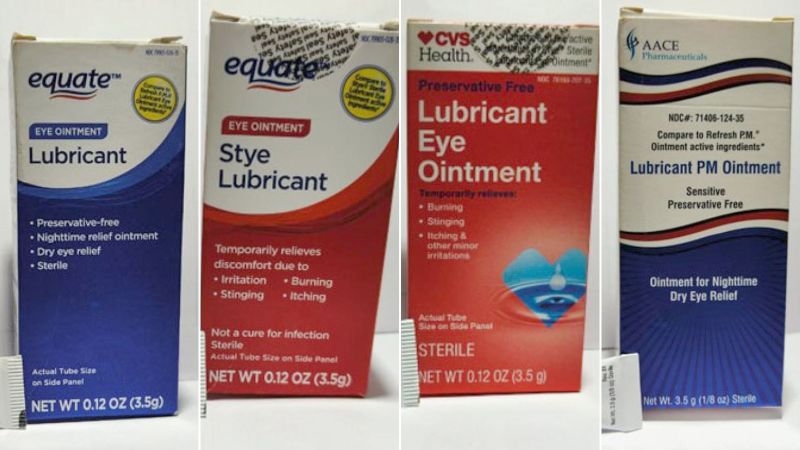Eye ointments sold at CVS and Walmart may not actually be sterile, a recall posted by the US Food and Drug Administration warned.
On Feb. 26, the FDA posted a voluntary recall from Brassica Pharma, which is recalling several eye ointments with expiration dates ranging from February 2024 to September 2025.
An FDA inspection at a Brassica facility found a “lack of sterility assurance,” the recall notice said, which has a potential risk of causing eye infections.
This recall is the latest in the FDA’s increased focus on eye products. Last October, the agency warned 26 eye drop products could lead to a serious eye infection resulting in vision loss or blindness. The FDA had found “insanitary conditions in the manufacturing facility and positive bacterial test results from environmental sampling of critical drug production areas in the facility.”
And earlier in 2023, the FDA issued a warning not to use several other eye drop products due to microbial contamination.
The agency warned that potential contamination can be a serious health risk because medication applied directly to the eye can “bypass some of the body’s natural defenses.”
Brassica’s recall includes brands of eye ointments at popular retailers: Equate Lubricant Eye Ointment (Walmart’s private label), Equate Stye Lubricant Eye Ointment, CVS Health Lubricant Eye Ointment and the Lubricant PM Ointment, which is distributed by AACE Pharmaceuticals.
The FDA posted the affected expiration dates online.
The recall said that the distributors — Walmart, CVS and AACE Pharmaceuticals — will be arranging the return of all the affected products. The recall warned customers to stop using the eye ointment and said they can return it.
CVS said it stopped sales of the product both in-store and online in October 2023, and that it can be returned for a full refund. Walmart also confirmed the product has been removed from its shelves.
CNN has reached out to AACE for comment.
The recall said that no injuries related to the potentially unsterile facility have been reported. But any adverse reactions can be reported to the FDA’s MedWatch Adverse Reporting program, the recall said.
– CNN’s Carma Hassan contributed to this report.
Read the full article here




